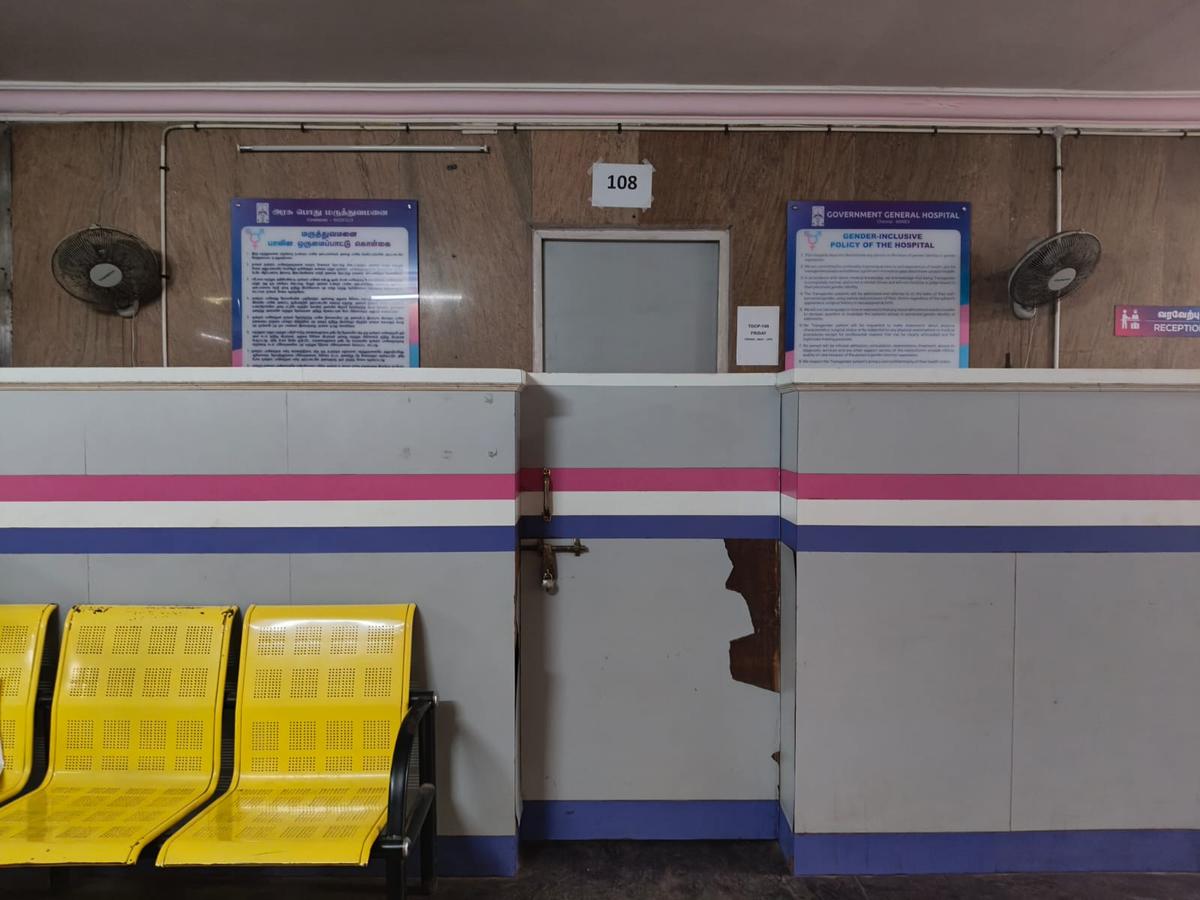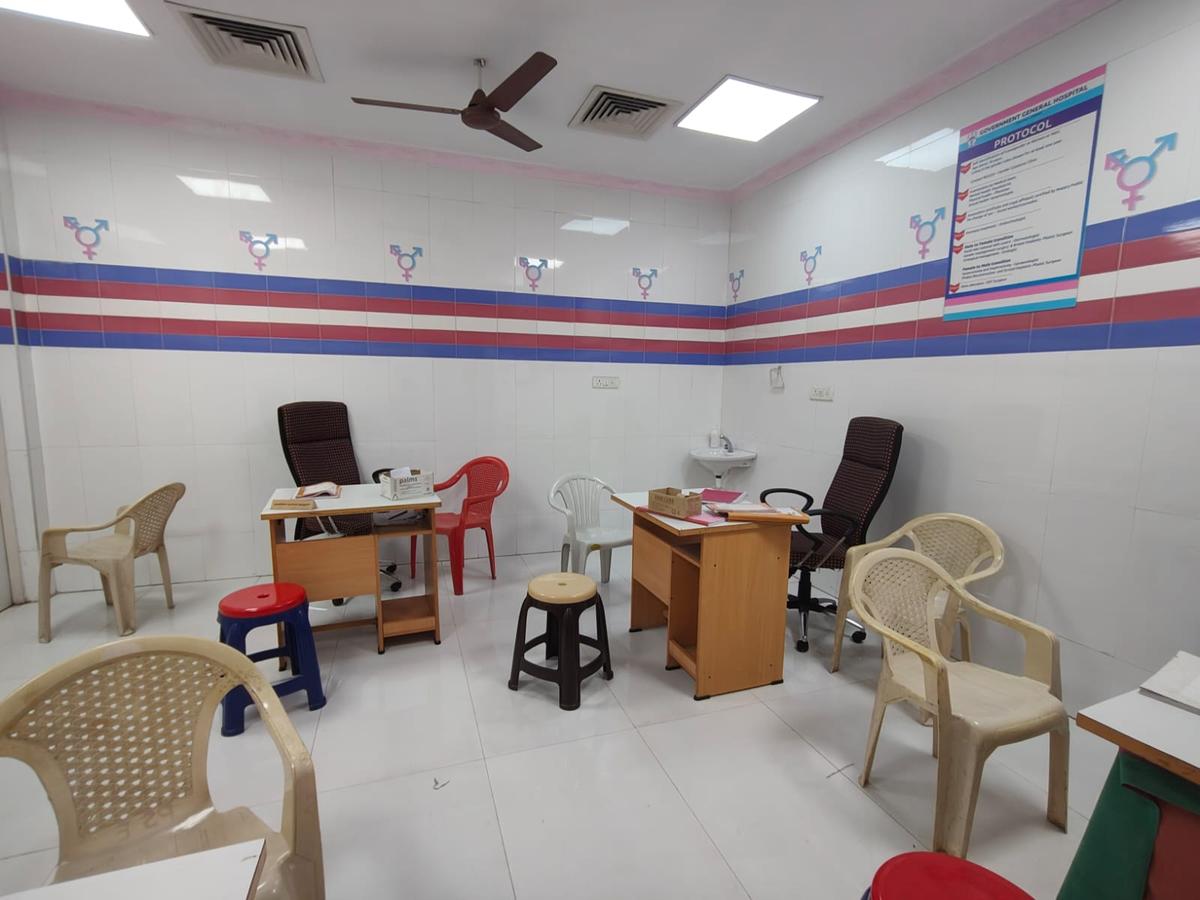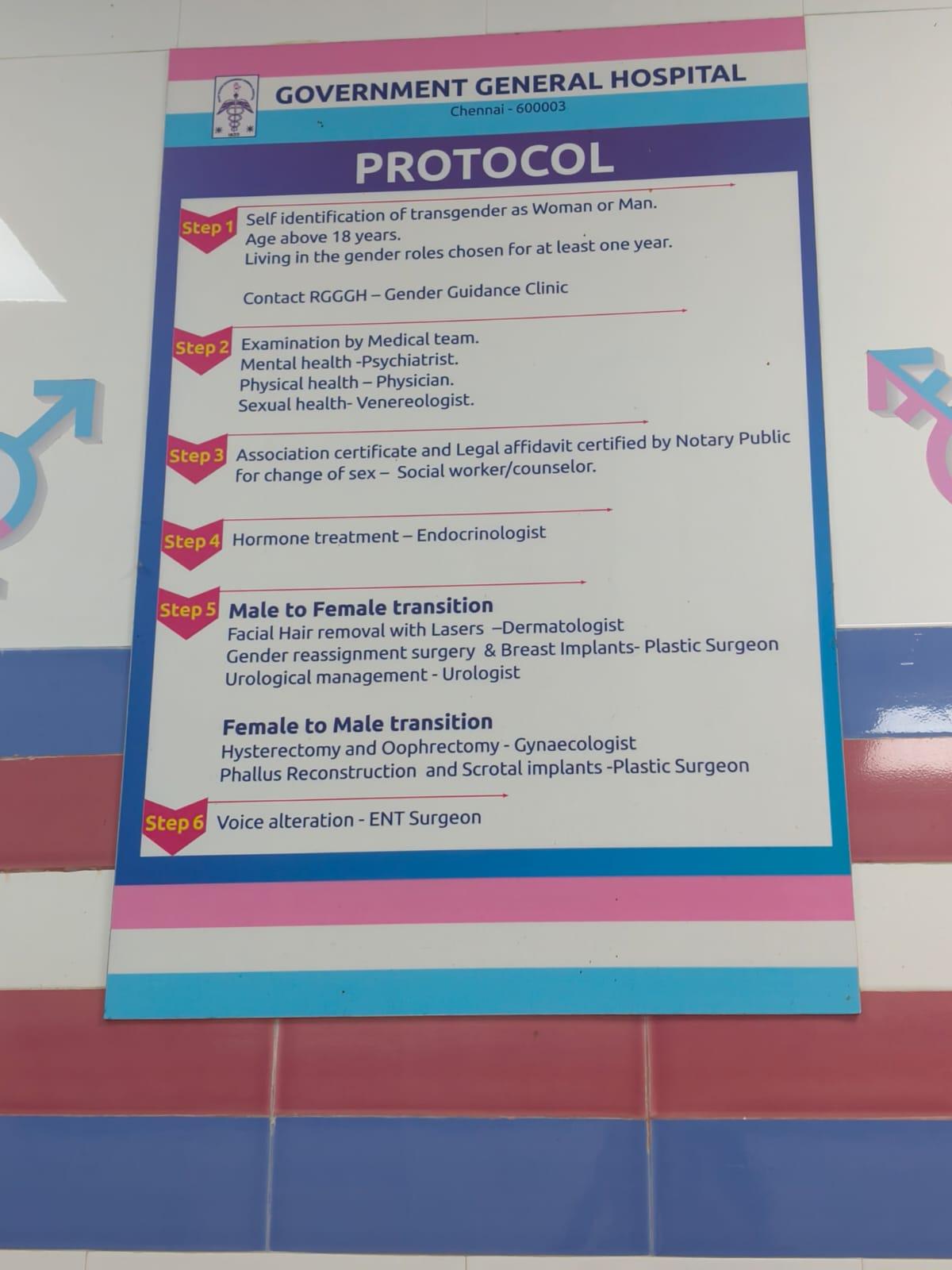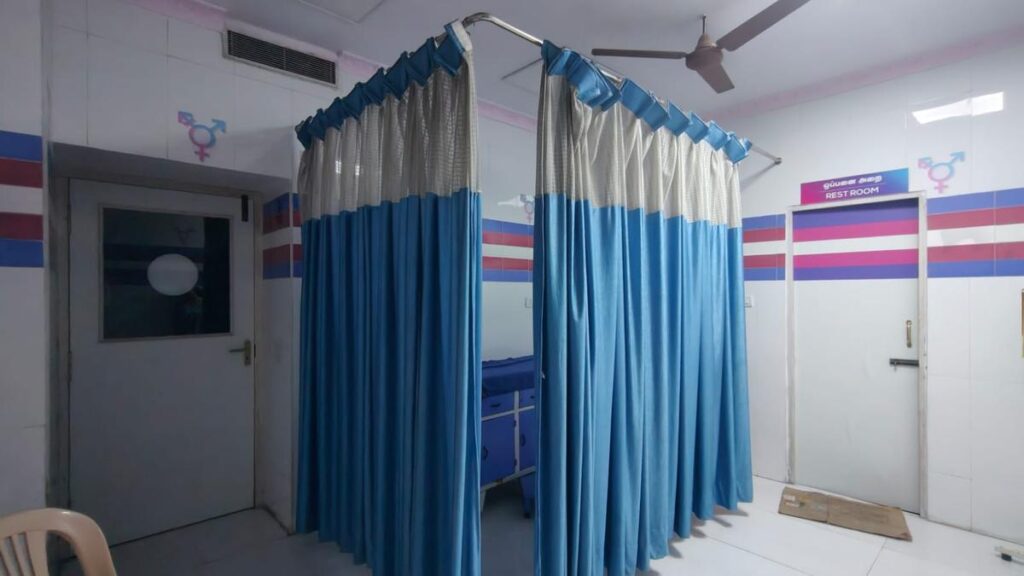John (name changed), a 28-year-old transman, felt a wave of nervousness as he walked into the gender guidance clinic for transgender persons at Chennai’s Rajiv Gandhi Government General Hospital (RGGGH). But that anxiety soon gave way to relief. At the clinic, he underwent a series of counselling sessions and medical consultations with a team of doctors before proceeding with gender affirmation surgery.
“The doctors at RGGGH were very friendly. They made me feel comfortable throughout the surgery and recovery,” says Mr. John, who got a mastectomy. “I can’t even feel the stitches now. More importantly, I feel more like myself.”
In 2019, Tamil Nadu became the second State in the country, after Kerala, to set up a clinic exclusively for transgender people at RGGGH, and later, at Government Rajaji Hospital in Madurai, offering free gender affirmation surgeries. In fact, RGGGH had been performing free surgeries for transpersons since 2009, but they were conducted as part of general outpatient services. “The gender clinic ensures that all services are available under one roof, so transpersons don’t have to go from one place to another to receive gender-affirming care,” says M. Sugumar, head of the plastic surgery department at RGGGH, who is also in charge of the gender clinic. His team includes Senthil Kumaran, assistant professor in the department of plastic Surgery at RGGGH, and a postgraduate resident.

The entrance to the gender clinic at RGGGH is marked by colours of the trans pride flag
| Photo Credit:
Meenakshy S.
As of 2024, the hospital has performed 171 gender affirmation surgeries for transmen and women, which include penectomies, breast implants, and mastectomies, among other procedures. More than 1,500 trans persons have sought care at the clinic, as of 2024. There was a drop in the number of surgeries during the COVID-19 pandemic, as most outpatient services were shut. However, since then, the number of surgeries has increased, says Dr. Sugumar. He attributes this rise to the progressive policies of the State government, as well as growing awareness and education within the transgender community.

What does the clinic offer?
The clinic, which operates on Fridays from 9 a.m. to 1 p.m., houses a psychiatrist, an endocrinologist, a venereologist, a physician, and plastic surgeons. “A transperson who visits the clinic is first referred to the psychiatrist. After several rounds of counselling, the endocrinologist evaluates the hormonal aspects, and the physician, the physical aspects. The venereologist ensures the person’s sexual health, and the plastic surgery department performs the surgery,” explains Dr. Sugumar. Each surgery may cost between ₹1.5 lakh to 3 lakh in private hospitals.
Trans people aged 18 and above are eligible for surgery, but doctors work with them for about a year to ensure they are certain about proceeding, as the surgery is difficult to reverse. “It’s a time-consuming process, but it’s necessary. Doctors need to ensure we are fully prepared for surgery,” points out Mr. John, an accountant.
However, Jaya, a transgender activist and general manager of Sahodaran — an NGO that works for the welfare of the LGBTQIA+ community — says the length of the process can be a barrier for many in the community, especially those who have left their natal families in order to undergo surgery. “Some transpersons may have left their homes with very little savings to support themselves during the process. While due diligence is important, there should be better mechanisms in place to support transpersons during this period of transition,” she adds.

The clinic, which operates on Fridays from 9 a.m. to 1 p.m., employs a psychiatrist, an endocrinologist, a venereologist, a physician, and plastic surgeons
| Photo Credit:
Meenakshy S.
Surgeries also come with certain risk factors. For instance, Kamali, a transwoman, underwent gender affirmation surgery in 2015 (before the gender clinic was established) at RGGGH, and experienced complications a few months later. “I developed an infection, but the doctors were able to resolve it. I’ve been well since,” says Ms. Kamali, 34, who works with the NGO Thozhi.
“All surgeries carry risks,” adds Dr. Sugumar. A procedure like penoplasty (the construction of the penis) performed on transmen, for instance, involves greater risk and is relatively rare.

Cost of medicines
Besides surgeries, the clinic also offers gender-affirming hormone therapy (GAHT), which involves using hormones to align a person’s physical characteristics with their gender identity. Anthri Nyx, a trans woman, has been undergoing GAHT at RGGGH for about eight months now, and she couldn’t be happier with the results.
“It’s neither GAHT nor gender affirmation surgeries that make us transpersons. We are transgender by birth. But accessing these crucial treatments is important; they help us feel more fulfilled and accepted by others,” she says, adding that the doctors at the clinic are friendly, sensitive, and non-judgemental.
However, although the clinic offers free surgeries, patients must pay for their medicines — something that Ms. Anthri, an analyst, says can be challenging for many transpersons from marginalised communities and low socio-economic backgrounds. Mr. John, who had to take testosterone for several months both before and after his surgery, says: “I take testosterone injections every month, and each injection costs about ₹500. Not everyone can afford it.”

Demand for more clinics
With demand for surgeries on the rise, Ms. Jaya says there should be more gender clinics across Tamil Nadu, where trans people can access gender-affirming care. She adds that raising awareness about these clinics is equally important.

The SOPs followed by doctors treating transgender people
| Photo Credit:
Meenakshy S.
According to the National Health Mission-Tamil Nadu, in addition to the clinics in Chennai and Madurai, 10 other gender clinics have been established in various districts across the State — including Salem, Coimbatore, Tiruchi, Villupuram, Vellore, Dharmapuri, and Thanjavur. Dr. Senthil says there is currently no overload of cases at the hospital. “There was a need for such clinics to be set up in government hospitals in peripheral areas, and the government is addressing that need. Earlier, transpersons from other districts had to travel to Chennai or Madurai for healthcare, but that is now changing,” he adds.

Guidelines for treatment
Shantaraman K., Dean of RGGGH, points out that the gender clinic at the hospital has made significant strides in improving access to healthcare for the transgender community. The hospital has also formulated comprehensive guidelines on how transpersons should be treated.
“These guidelines, which apply to all government hospitals, focus on ethical and emotionally sensitive care. Access to gender-affirming treatment is a person’s right, so we ensure that decisions about gender are made by the individual — not their families,” he explains.
The guidelines also address the physical and psychological aspects of care, and importantly, they clearly define surgical protocols, Dr. Shantaraman adds. “In India, the practice of transporting transpersons to multiple locations for illegal surgeries still persists. As a medical team, we do not support this practice. It is not only medically unsafe, but also demeaning to the individual,” he says.
Doctors also note that some transgender people, due to a lack of access to proper healthcare, may resort to taking hormones and tablets in an unregulated manner. “This can lead to serious side effects. Hormones must always be taken under medical supervision,” cautions Dr. Sugumar.
Published – June 04, 2025 04:34 pm IST

